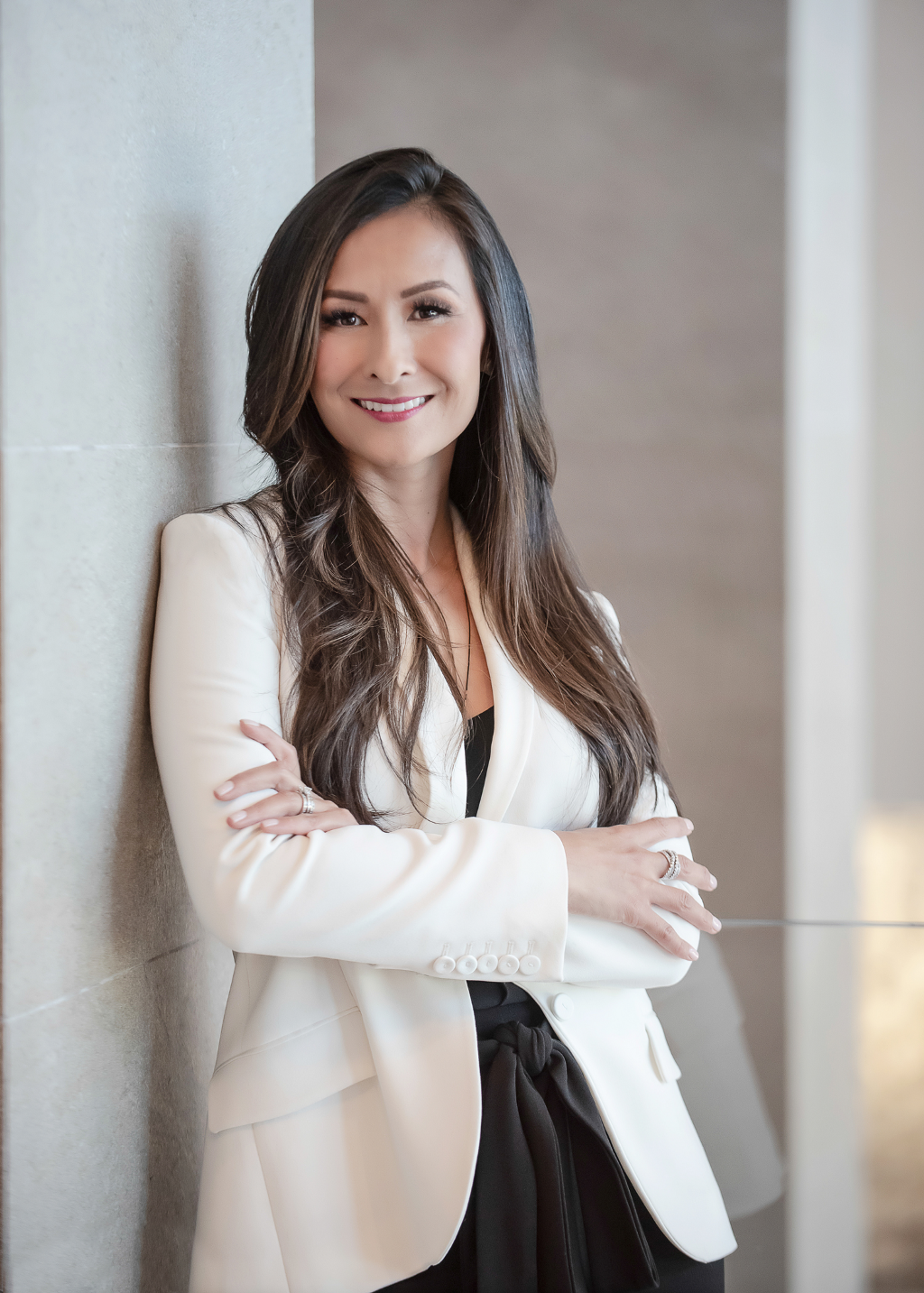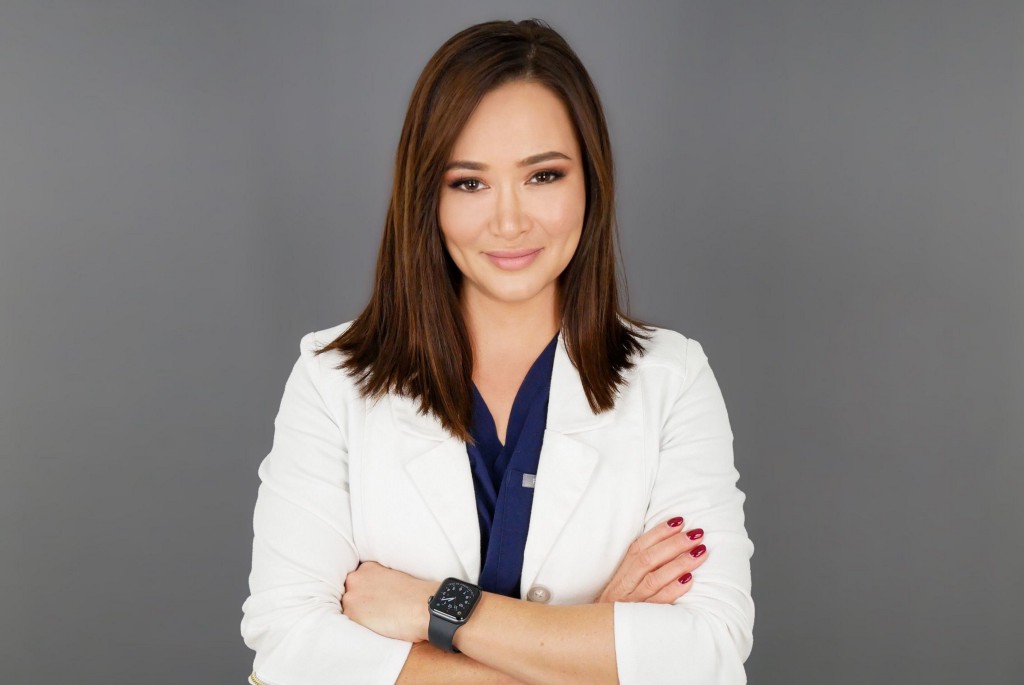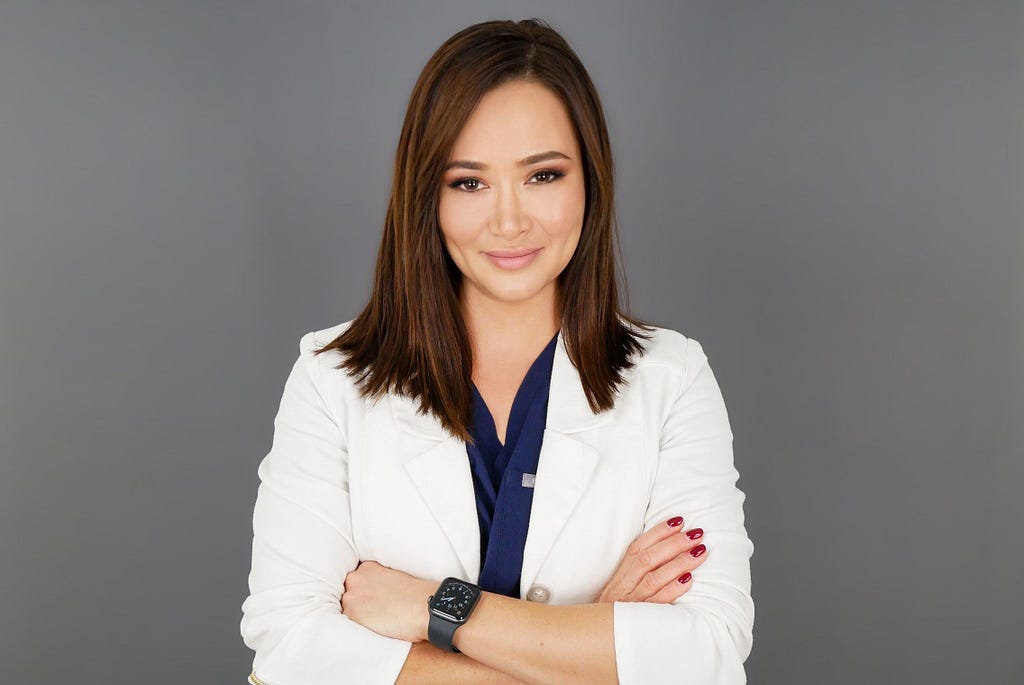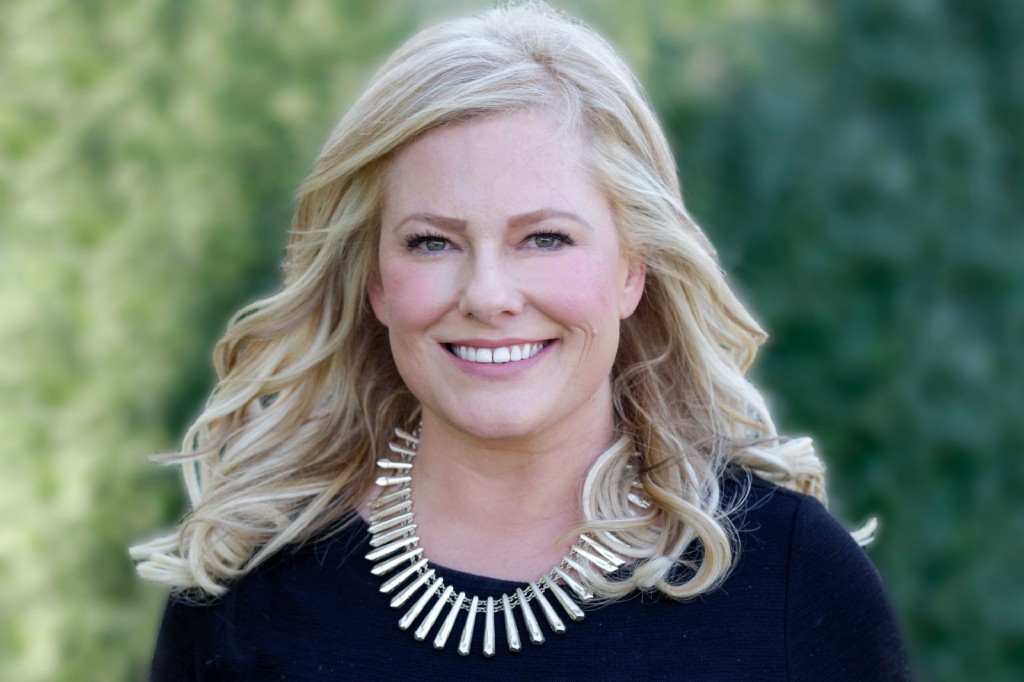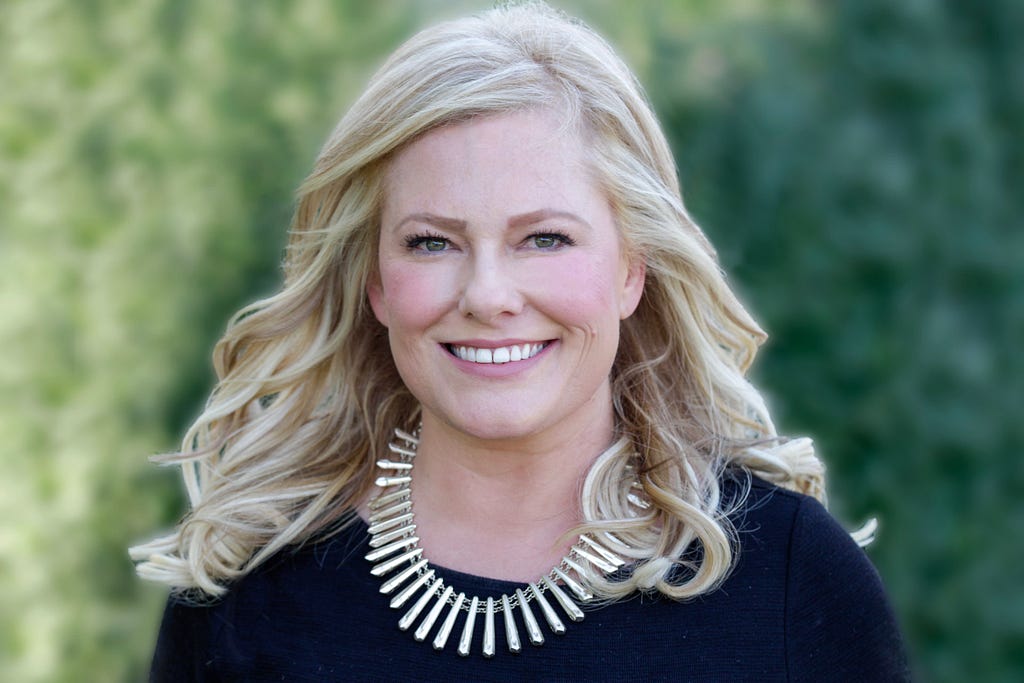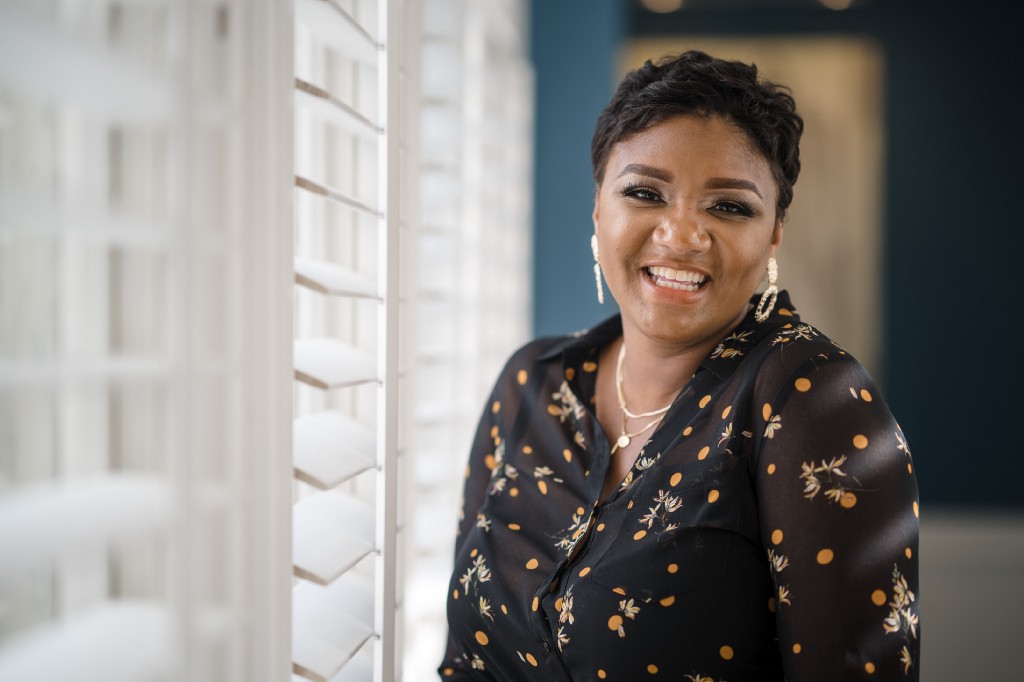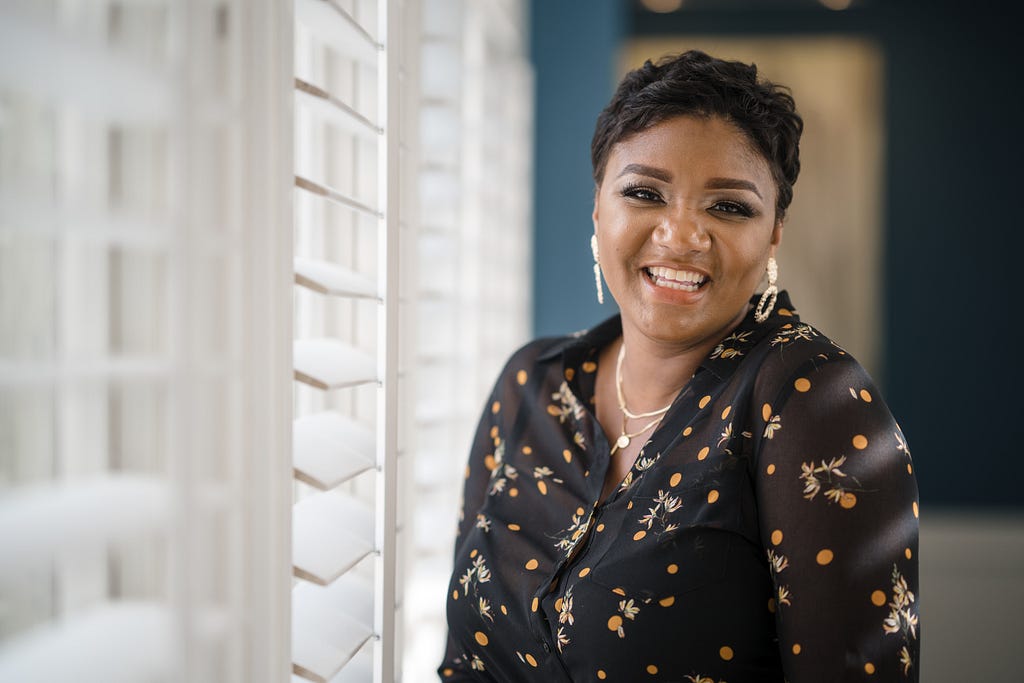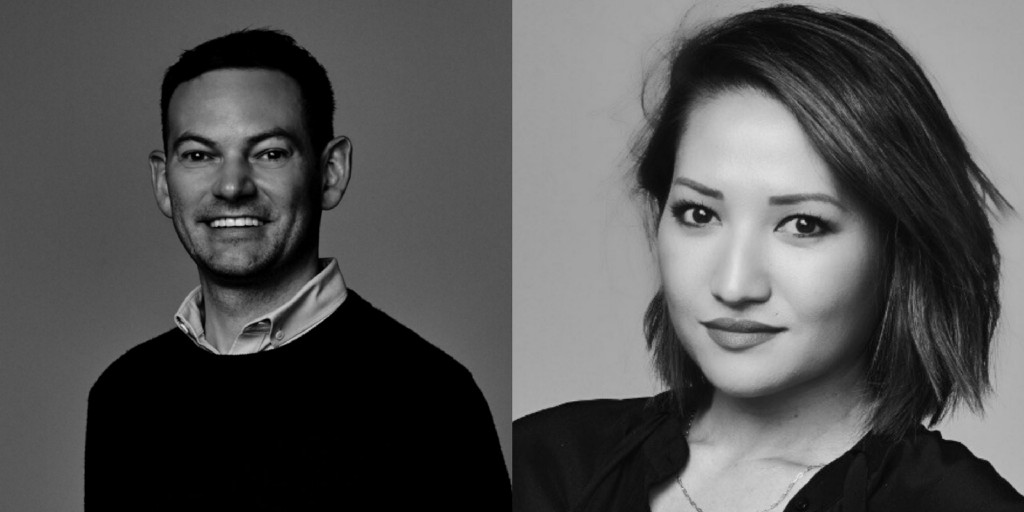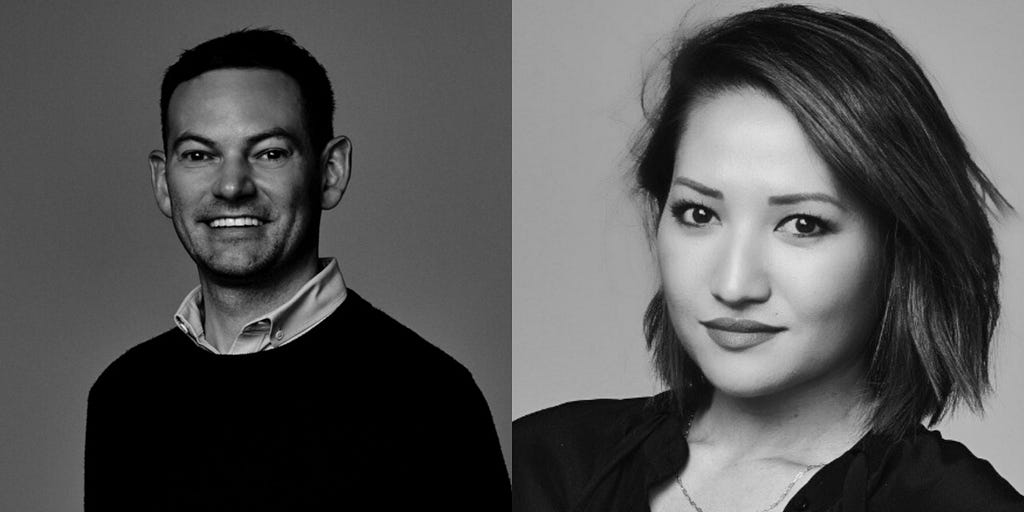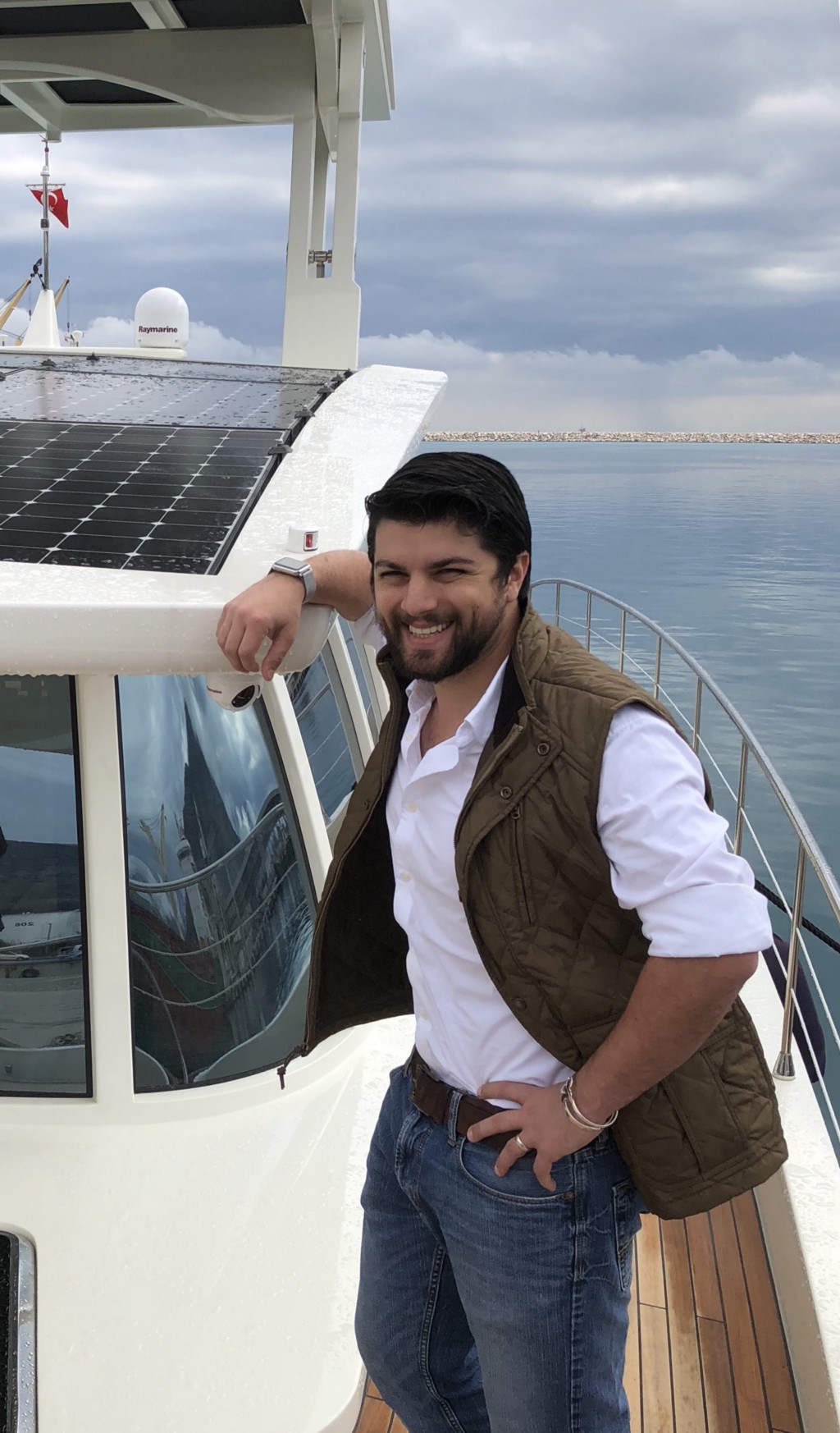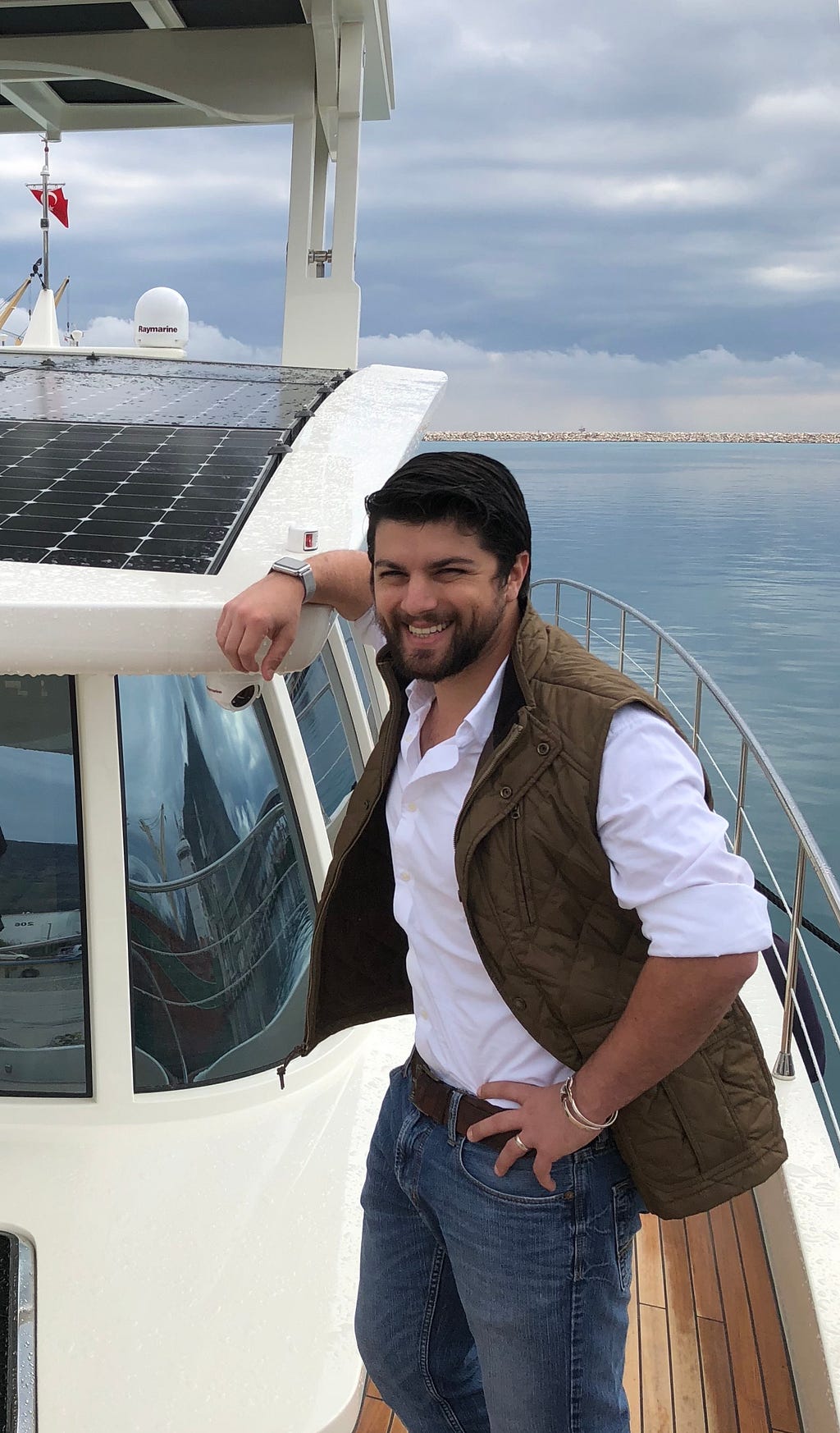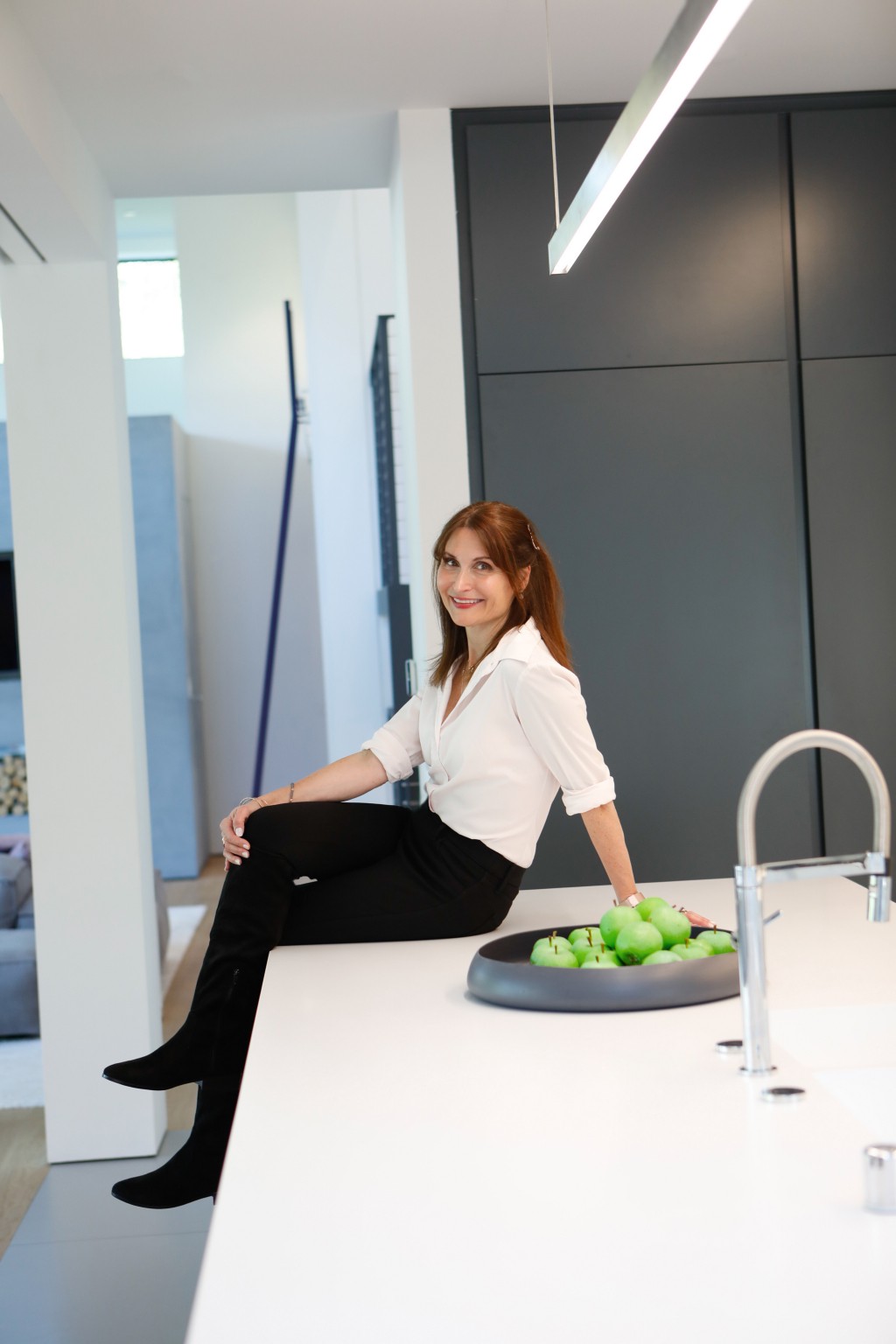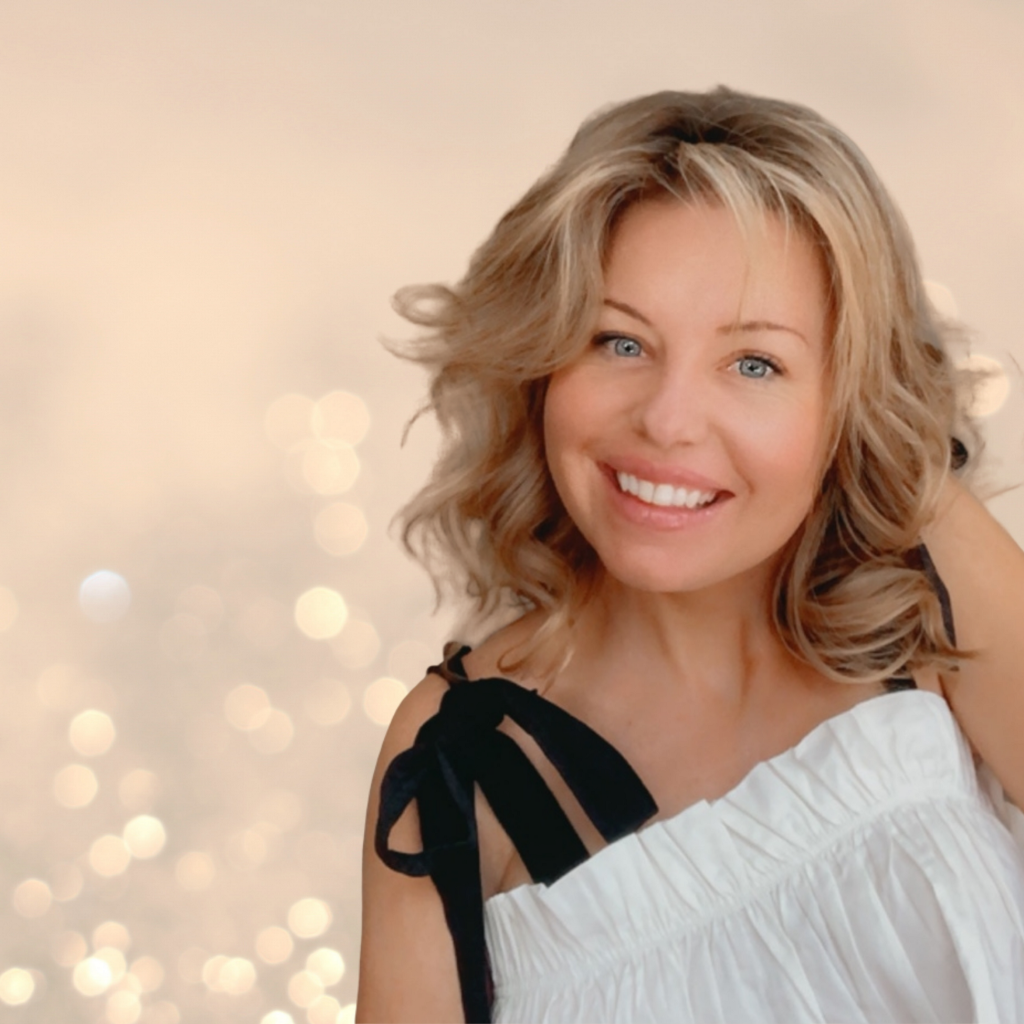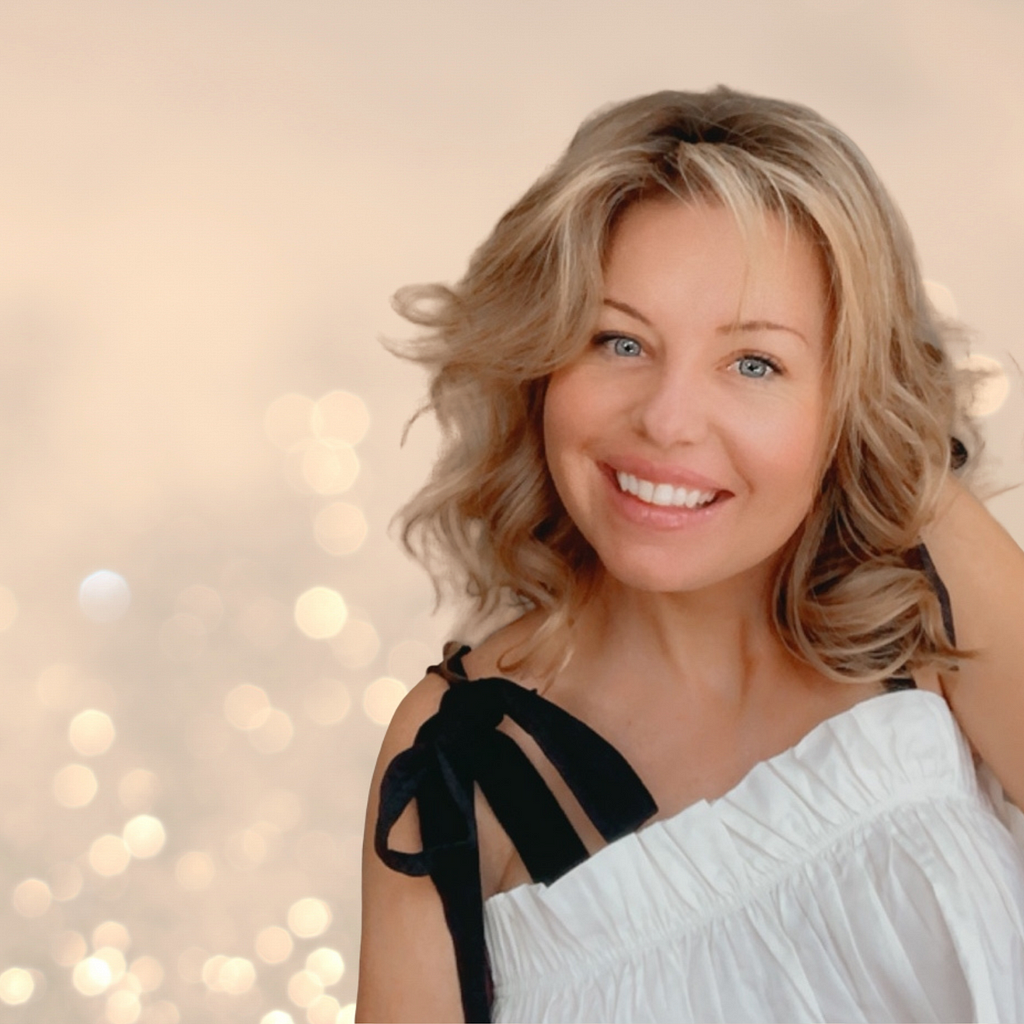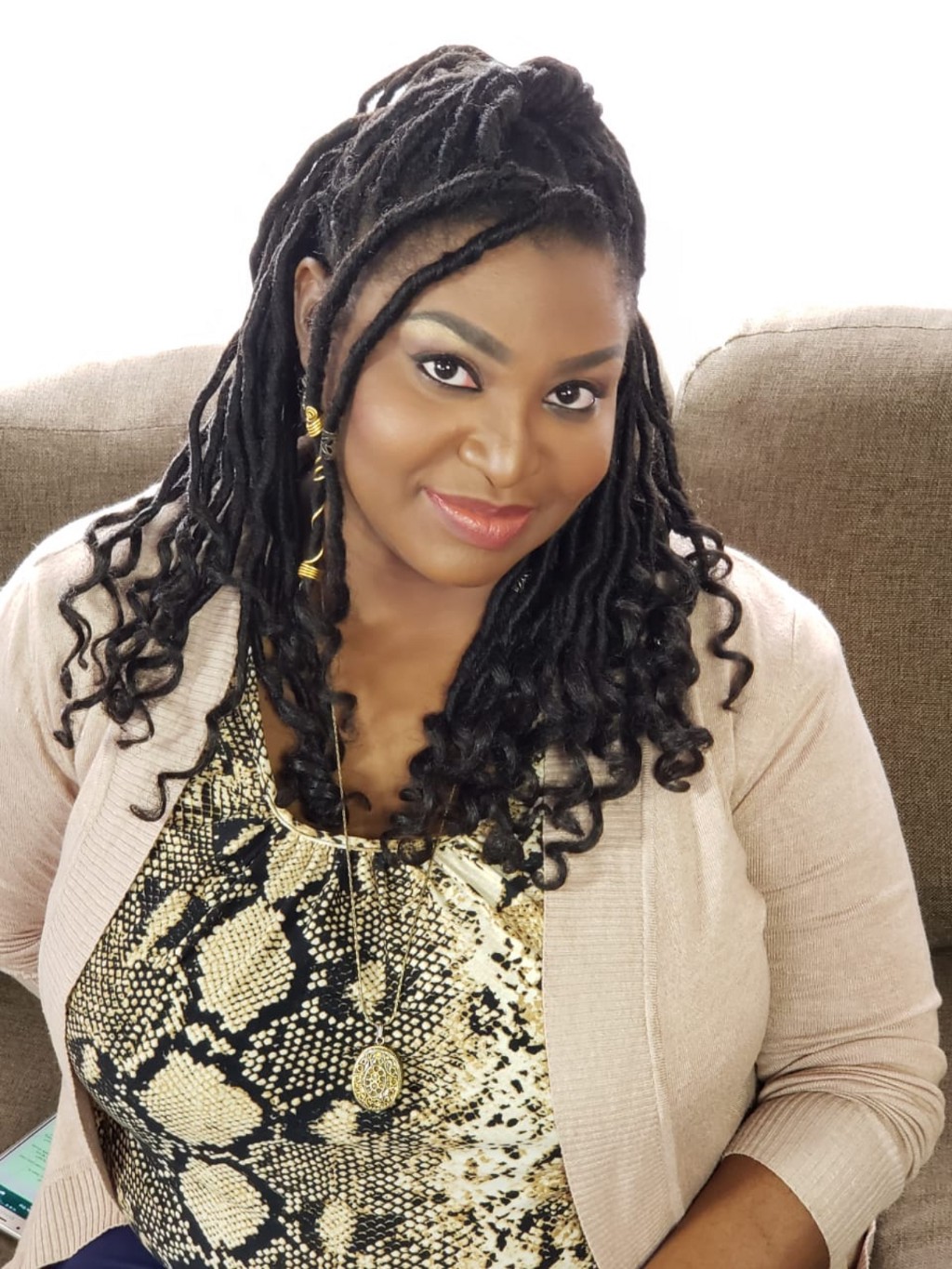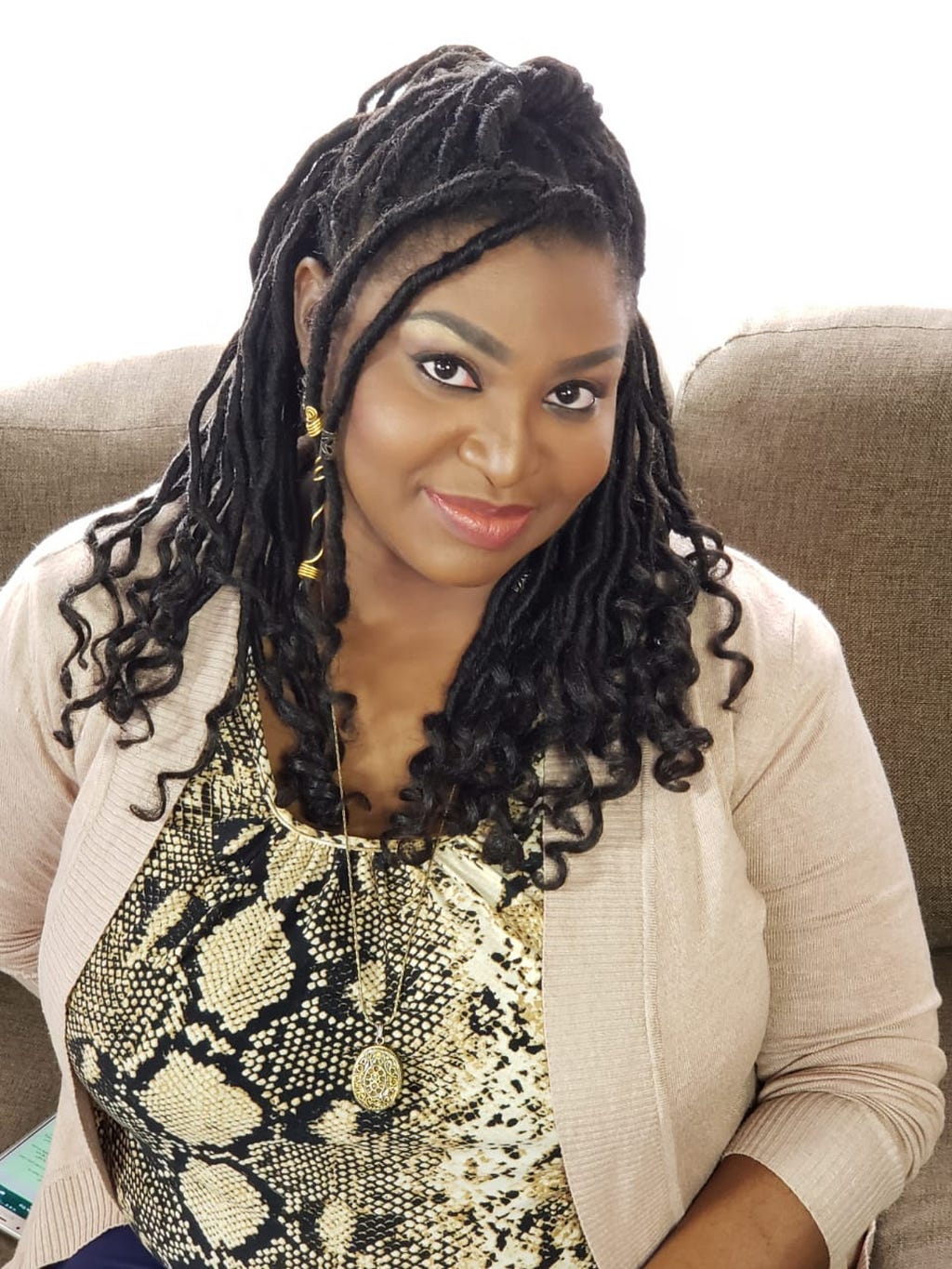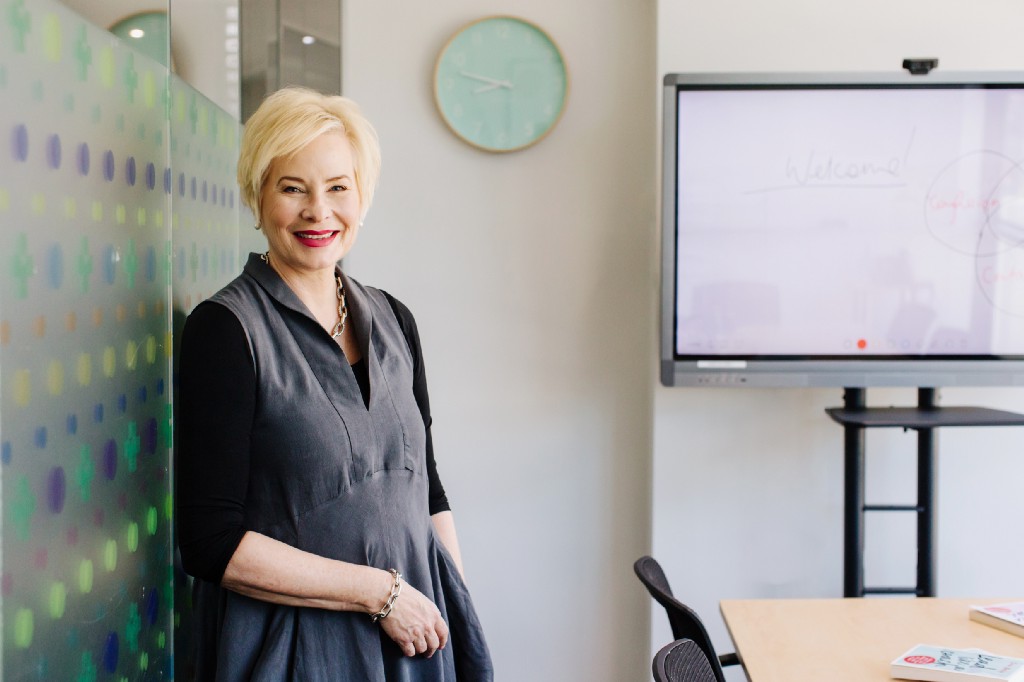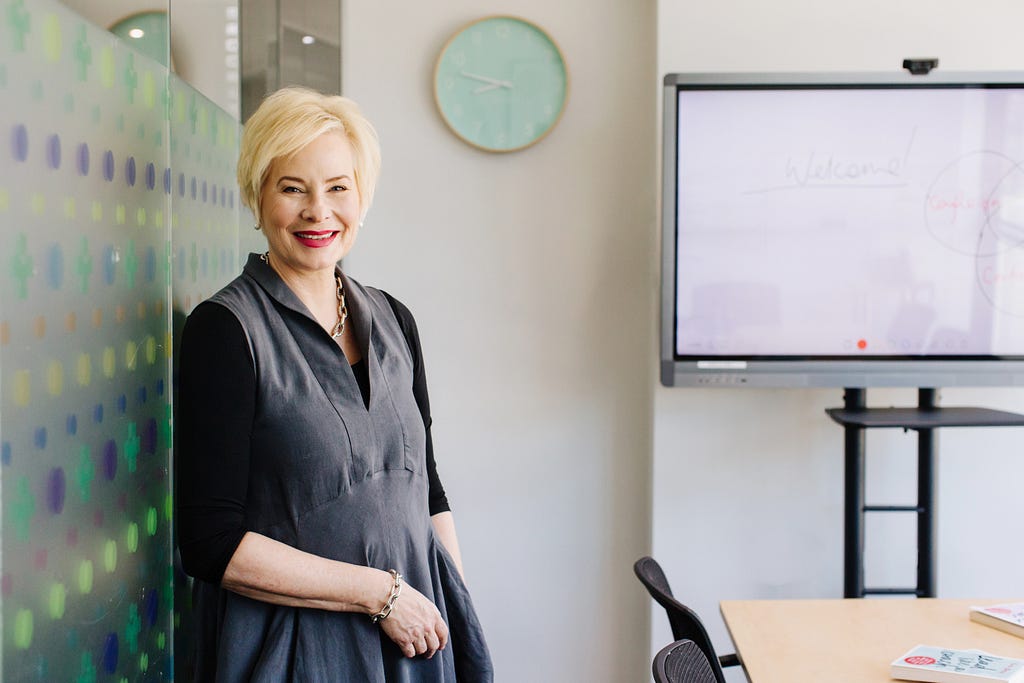Jenelle Kim: Beauty truly starts from the inside, so diet and lifestyle habits are just as important as what formulas we use topically
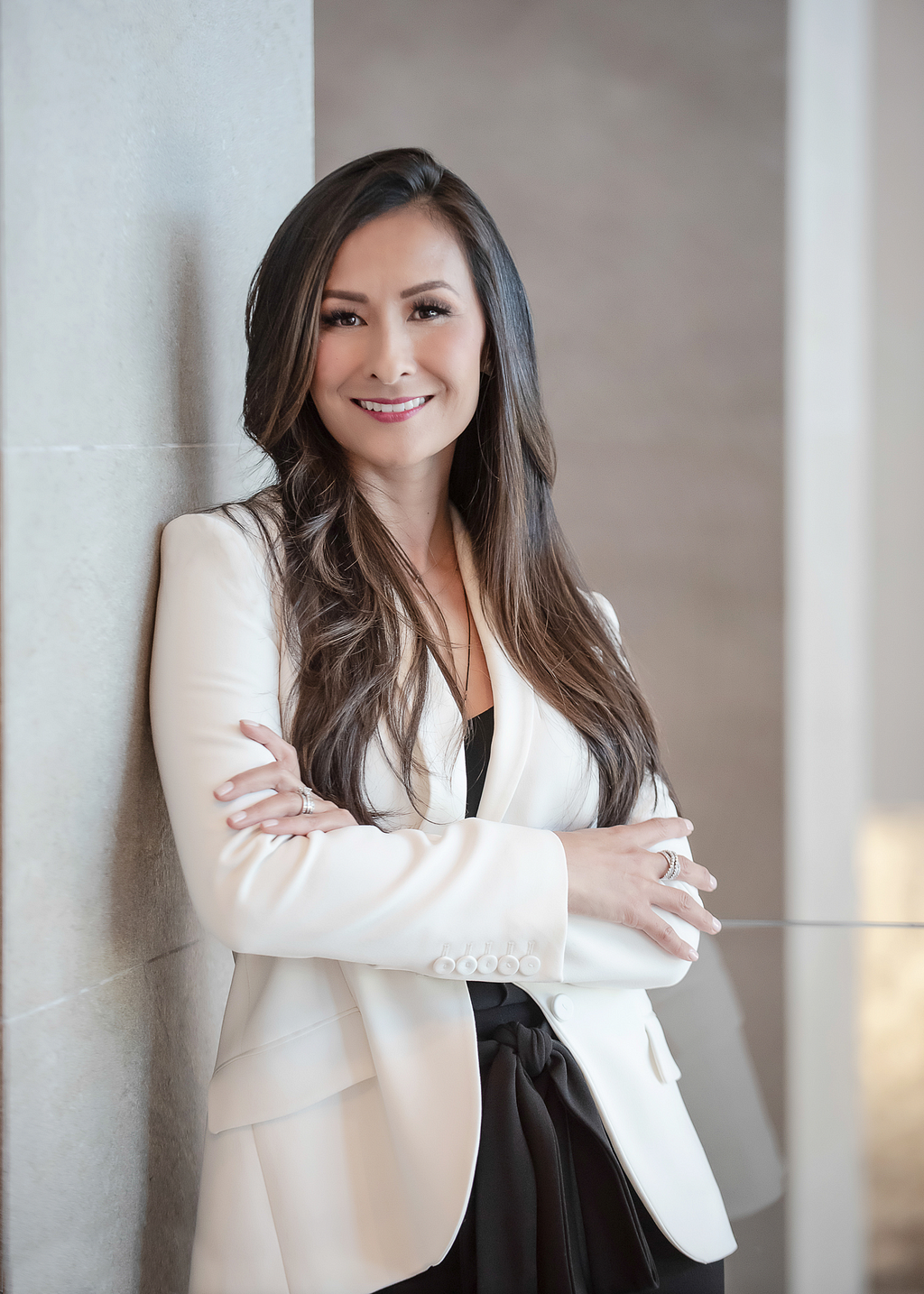
Beauty truly starts from the inside. So, diet and lifestyle habits are just as important as what formulas we use topically. They go hand in hand. This is a fundamental concept that I have been on a mission to spread for almost 20 years. This is very much based on the understanding of the body being holistic (with emphasis on the understanding of the body based on Traditional Oriental Medicine). Ultimately, true beauty must start from the inside out — your health directly affects your appearance and aging); as well as taking into consideration the significance of what you are applying topically and how it can affect your overall condition (another reason why clean and natural products are so important to incorporate into your daily regimen…after all, your skin is your largest organ).
As a part of our series about how technology will be changing the beauty industry over the next five years I had the pleasure of interviewing Jenelle Kim.
For nearly a decade, Jenelle Kim has shared with those she treats how to incorporate the power of Eastern philosophy into Western lifestyles, enabling her clients to live more balanced, purposeful, and harmonious lives. Jenelle passionately believes that by creating an awareness of the connectedness between the mind, body, spirit, and greater universe, then will you truly understand yourself, and therefore, will you understand your place in the universe, and what you are called to do in your life — your destiny.
Jenelle is devoted to integrating the philosophy, medical wisdom and expertise of East Asia with the advancements of modern life and medicine of the West in order to touch and positively affect the lives of others. Jenelle holds a Master of Science Degree in Traditional Oriental Medicine (MSTOM) and is Nationally Board Certified in Herbology, Oriental Medicine, and Acupuncture. She furthered her studies abroad, training with some of the most respected doctors and herbologists of East Asia.
Through the companies she co-founded — Orience ,Tao of Man, and JBK Wellness Labs — Jenelle is able to share the healing power of Traditional Oriental Medicine with a greater audience around the world. Now, Jenelle wishes to share the 8 Keys, a blueprint for life that will always lead one to find their correct path — the path of purpose, focus, fulfillment and the most optimal relationships with those around us.
Thank you so much for doing this with us! Before we dive in, our readers would love to learn a bit more about you. Can you tell us a story about what brought you to this specific career path?
I was born to do what I do. I come from a long lineage of Traditional Oriental Medical doctors and herbologists, who have dedicated their lives to understanding medicine and the human mind and body in order to help us achieve our healthiest condition possible.
For my entire life it has been my wish to make a difference in the world. As an American born daughter of a Korean father and American mother, I learned from an early age the power behind centuries-old medicine and principles passed down from my mentors — the same principles that push me to continuously live a life of meaning, purpose, gratitude and giving.
As my mentor taught me, it takes one match to light a thousand — one person truly can make a difference in this world. I am fortunate in this lifetime to have the opportunity to share formulas the world that have the power to truly improve one’s mental and physical condition, and what is more important than our health. These secret formulas have been handed to through my lineage from generation to generation for centuries and were once only reserved for the royal families of East Asia.
This was not any easy endeavor especially considering that I was frequently told that no one would be interested in all-natural herbal formulations, no one would understand the beauty secrets of the East interesting seeing that Korean Beauty is now the most renowned in the world. I have had to break through many barriers and I have had to earn the responsibility of being the first women to ever have the honor of guarding my lineage’s secret formulas, which had never before been shared on such a large scale.
Since I was 4 I learned the understanding of the human mind and body from my mentor. I simply started with secret formulas in my head and a huge wish to take these formulas into the world so that they I could help as many people as possible with them. I went to the Bishop’s School in San Diego (so I am a native !), studied at Pitzer College (of the Claremont Colleges), and received my doctorate’s degree in Traditional Oriental Medicine after 6 years of studying (and that was on the fast track!). I went on to study and practice both here in the US and abroad in East Asia. While going to school I began developing high-end, all-natural products for the high-end spa industry. It was at the age of 20 when I started building the first company that brought these secret herbal formulas to the world. I would wake up at 6am to formulate and develop innovating products and creating the brand that would bridge ancient wisdom of the east with the technologies and developments of the west in formulation, I would then go to school to study my medicine, treat patients in clinic and return around 9pm to continue working into the wee hours of the night.
What started as a small two-person team in a laboratory in San Diego, has now grown into a team of 20+ employees, and the company is ranked in the top 1000 growth companies in the manufacturing sector based on Inc 5000’s 2018 rankings. Growth has been organic and steady and JBK has grown in concert with its client base. Its 50+ customers are carried on the shelves of Neiman Marcus, Whole Foods Market, Urban Outfitters, CVS, Kroger, Ritz-Carlton Hotels, Four Seasons Hotels, multinational direct-selling companies, and other locations. The business model is unique in that the products produced by JBK’s contain natural proprietary herbal formulas, which have been handed down from generation-to-generation and are only available from JBK. Therefore, there is a built-in mechanism whereby JBK’s clients are able to have truly special products from everyone else on the market, and the products cannot be duplicated by other manufacturers.
Together with my husband — Craig Nandoo, we built a strong all-natural herbal manufacturing lab. After many years of hard work and breaking common molds that spanned all beauty/wellness industries, I now travel the world educating on herbal medicine, and I overlook our labs as we continue to create powerful products that include: skincare, body care, topicals, dietary supplements and pet products.
Can you share the most interesting story that happened to you since you began your career?
One of the most interesting things I have noticed since I began leading my company is how quickly everything can change. It is vital to constantly “go with the flow” or as I say, “move with the Tao.” I have watched the direction of our company change so many times, because in order to be successful I believe that you have to constantly move with the twists and turns of opportunity. My mentor always taught me, there are only so many times in life when the door of opportunity shows up — sometimes its 3 times in life, and sometimes it is only once. So, when you know it is there it is so important to seize the opportunity, to be open-minded, to think at least 5 steps ahead. By continuing to follow these principles I have experienced time and time again that in one year everything can change.
One particular moment in time when I definitely saw that expanding our minds and ideas to embrace something totally different than what was planned was in 2012, when my lab entered the CBD industry. I initially turned down the offer to develop formulas for what are now the pioneers of the industry, but when I saw that they had clear intentions of helping others with this powerful herbal ingredient, which has been known in Traditional Oriental Medicine for over 4000 years, I committed to doing my part in helping the world understand CBD correctly.
Are you able to identify a “tipping point” in your career when you started to see success? Did you start doing anything different? Are there takeaways or lessons that others can learn from that?
When I first began developing and formulating herbal products I was in charge of formulating and developing the products, as well as marketing and promoting. I remember our office (of 5 people) receiving an order of 6 products and frantically running back and forth from the lab to the sales office, manufacturing and bottling one more bottle of cleanser only to run back to the sales office (about 45 feet) to send out the order. I had no idea what I was doing, but I did know that I had incredible formulas that I had to get out to the world and nothing would stop me in doing so. So, we figured it out. Fast forward almost 20 years and it is not uncommon for us to manufacture and ship orders greater than 100,000 units at a time.
I learned the obvious since the beginning — perfecting and scaling up the formulas for large clients around the world. However, the most important thing that this memory constantly graces me with, is the grounding action of perspective. I am always grateful for any opportunity that arises, because I never forget how everything began, and when things become overwhelming or we have to troubleshoot I take a moment to remember moments such as the one above.
None of us are able to achieve success without some help along the way. Is there a particular person to whom you are grateful who helped get you to where you are? Can you share a story about that?
My father and my greatest mentor. He was my everything. He was a man of deep compassion, wisdom and perspective. Above anything he taught me that the most important thing in life is to be a good person and then everything will unfold as it should.
He was certainly strict, I was raised with much tradition, duty, and respect for my elders and for my lineage. However, he always allowed me to find my own path. Just before I decided to study Eastern Medicine and share our lineages’ formulas with the world he asked me one simple question, “do you want to be special and achieve something in this life? To make this world better?” I of course answered, “yes.” To which he responded, “then never be afraid to be different and when everyone else is sleeping you keep moving.” I have never stopped.
I lost my father at 33. He has never stopped teaching me though. The lessons he taught me while he was physically here have actually reached me even deeper than they ever did while he was on this earth. I now have to stand solely on my own two feet, moving through experiences and obstacles and having to be very in tune and connected to myself and to the universe. By being this way, I am able to hear his voice in my mind’s eye guide me along my path.
The beauty industry today has access to technology that was inconceivable only a short time ago. Can you tell us about the “cutting edge” (pardon the pun) technologies that you are working with or introducing? How do you think that will help people?
Our version of “cutting edge” entails combining the ancient wisdom of herbal/botanical medicine with the finest all-natural anti-aging ingredients to create clean and truly functional skincare that makes the best “food for the skin.” I am a strong proponent of incorporating the benefits of technology into our skin and beauty regimen, such as LED lights, silicone facial cleansing and anti-aging devices, and microcurrent machines; however, true and lasting health and beauty starts with proper formulas. Using properly balanced, clean and functional formulas help to create a strong foundation of longevity that is enhanced with technology.
Keeping “Black Mirror” and the “Law of Unintended Consequences” in mind, can you see any potential drawbacks about this technology that people should think more deeply about?
In terms of smart skincare apps, this can result with some concerns for various reasons. All technology is amazing, but sometimes skin conditions and skin care routines aren’t as simple as taking a photo and receiving technology driven recommendations. Diet, underlying health, and activity levels all have to be considered when looking for the right products for your skin.
Can you share 3 things that most excite you about the “beauty-tech” industry?
- Jade Rolling & Gua Sha — Our lab introduced these techniques to the western world back in 2006. We combined these powerful ancient techniques with formulas infused with the jade stones, which provided infrared and detoxifying properties to rebalance and purify the skin. These ancient techniques Jade rolling effectively works to improve lymphatic drainage and gua sha powerfully improves circulation, and helps to break up fascia, the connective tissue around muscles.
- LED Masks — This form of light therapy technology helps to effectively promote glowing skin and address problems with pigmentation and inflammation. When used in combination with clean formulas the results are manifold.
- Virtual “try on” apps — This is a great way for people to hopefully see that they are beautiful just the way they are, or if anything, not go as extreme in whatever it is that they are looking to change about themselves.
Can you share 3 things that most concern you about the industry? If you had the ability to implement 3 ways to reform or improve the industry, what would you suggest?
- Some things are meant to be performed by a professional. For example microneedling can be a very effective procedure that helps to build collagen and smooth complexion; however, the use of an at home microneedling/dermarolling device can damage skin and can lead to serious risks such as infection.
- The consumer should be pragmatic regarding whether or not a tool/technology is actually effective and can deliver its promise.
- We are human, we are not robots. So, it is always important to note that while technology is an incredible adjunct to our beauty regimen, our condition is changing all of the time so it is important to understand the condition as a whole and choose regimens accordingly.
You are an expert about beauty. Can you share 5 ideas that anyone can use “to feel beautiful”? (Please share a story or example for each.)
- Beauty truly starts from the inside. So, diet and lifestyle habits are just as important as what formulas we use topically. They go hand in hand. This is a fundamental concept that I have been on a mission to spread for almost 20 years. This is very much based on the understanding of the body being holistic (with emphasis on the understanding of the body based on Traditional Oriental Medicine). Ultimately, true beauty must start from the inside out — your health directly affects your appearance and aging); as well as taking into consideration the significance of what you are applying topically and how it can affect your overall condition (another reason why clean and natural products are so important to incorporate into your daily regimen…after all, your skin is your largest organ).
- Consistency is key. Our skin is our largest organ — it is alive, vulnerable, and its main role is to act as a barrier, which protects us from micro-organisms, pollution, radiation, mechanical impacts, pressure, and chemicals. Knowing its vital and active role, it can then be understood why it is so important to stay consistent with a daily skincare regimen that serves to purify and revitalize skin cells.
- Clean is best. If you continue to use chemical-filled products that are ultimately harmful to the skin, you may initially see positive results, but over time in the long term, the positive effects can become outweighed by the fact that you are forcing your skin to work harder than it needs to. For example, synthetic ingredients may make your skin feel silky and smooth in the short term, but may also be causing underlying issues that can cause dryness, a dull skin tone, or a host of other issues in the long term. You can visualize your skin hard at work fighting free radicals, pollution, bacteria and radiation, and every morning and evening you place a fine layer of product that contains harsh and sometimes toxic ingredients on to your face that rob your skin of nutrients and, furthermore, make your skin cells have to work even harder than they need to.
- We must read between the lines. The skincare industry is not regulated. Almost any ingredient can be incorporated into a formula. Even products that claim to be natural incorporate ingredients that may be harmful to your health. So, educate yourself and find experts and companies that you know you can trust.
- Mindfulness. Thinking and being positive directly affect how beautiful you feel.
You are a person of great influence. If you could inspire a movement that would bring the most amount of good to the most amount of people, what would that be? You never know what your idea can trigger. 🙂
“It only takes one match to light a thousand.” One person can truly make a difference in this world. Every moment I have the utmost gratitude for the fact that in this lifetime I have the opportunity to share formulas with the world, which have been handed down through my lineage, that have the power to truly improve health from the inside out. Because of this opportunity I never stop working to make sure that I do everything in my power to share these formulas. So many of us have so much positivity to share; so, never give up on doing so, because if we all put our energy into spreading what we have to give to this world, we will light up the universe.
Can you please give us your favorite” Life Lesson Quote”? Can you share how that was relevant to you in your life?
Work tirelessly but be productive and have faith in the universe (regardless of what religion or belief system you follow). There is only so much in our control.
I truly believe that that if you put your heart and mind into what you wish to achieve, always be a good person and stay on a path of goodness you can accomplish anything. Always be compassionate to others. Regardless of our differences we are all human; so instead of focusing on the differences, focus on the similarities — on what bring us all together as one humankind. There is nothing more powerful than connectedness from a place of good.
How can our readers follow you online?
Facebook DrJenelleKim
LinkedIn — DrJenelleKim
Instagram — drjenellemkim
Jenellekim.com
Jbkwellnesslabs.com
Jenelle Kim: Beauty truly starts from the inside, so diet and lifestyle habits are just as… was originally published in Authority Magazine on Medium, where people are continuing the conversation by highlighting and responding to this story.


